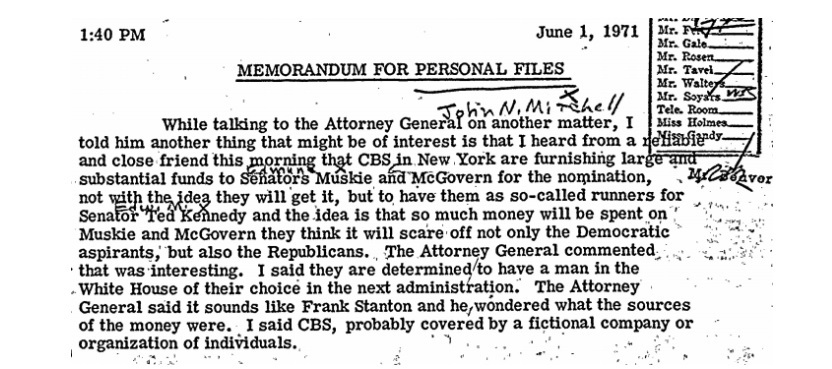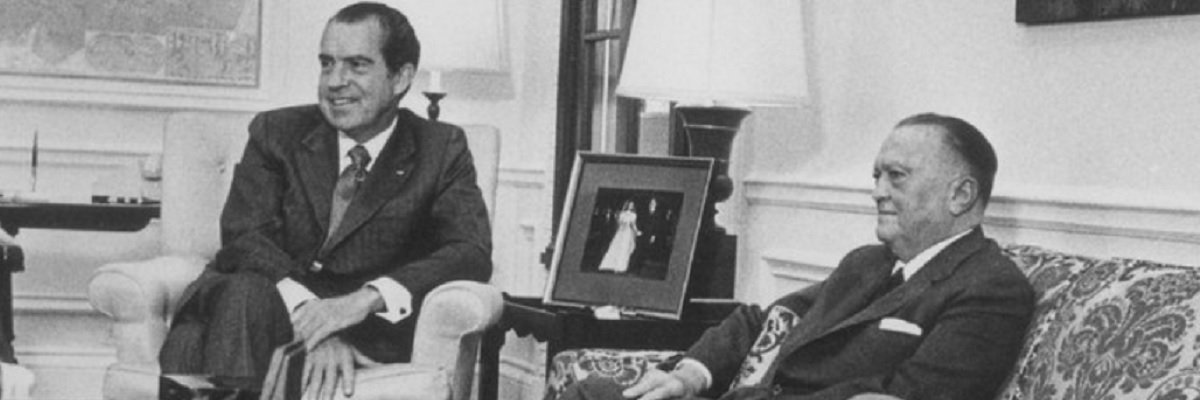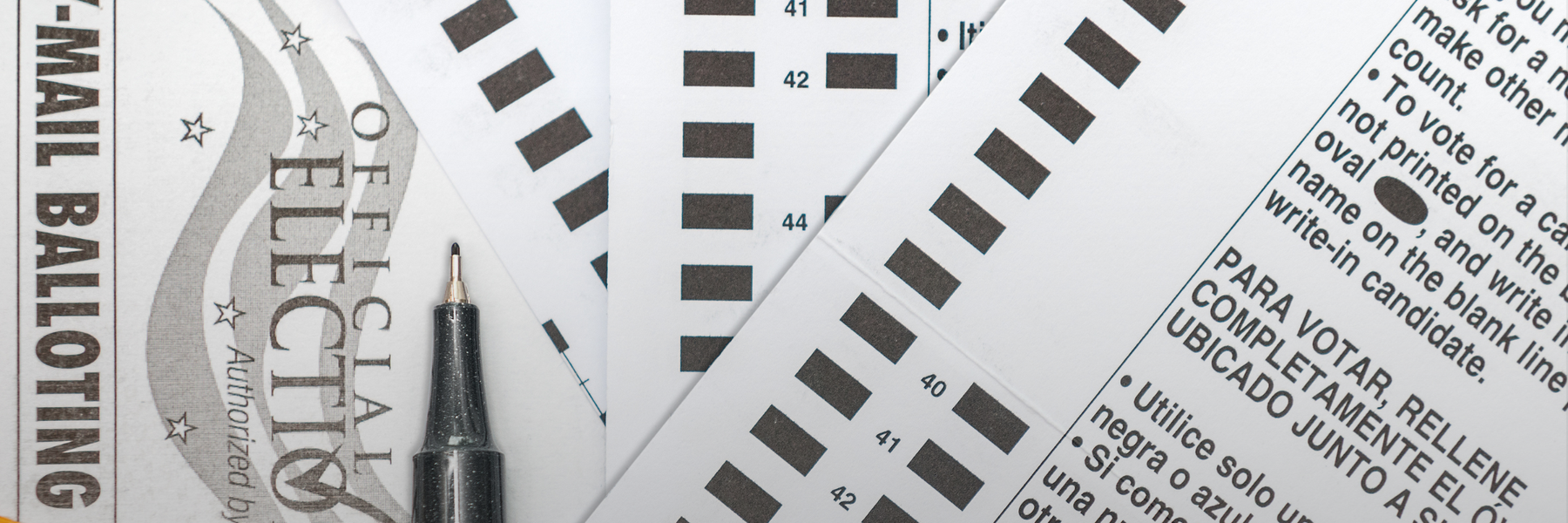A month and a half before the White House Plumbers unit was established, Federal Bureau of Investigation Director J. Edgar Hoover contributed the paranoia that would lead to the Watergate affair when he passed political intelligence to a senior member of the Richard Nixon White House and Nixon reelection campaign. According to Hoover’s intelligence, a conspiracy was emerging between several key Democrats, the media, and a former senior FBI official. Hoover’s source for this deep state conspiracy? A rumor from a friend, two of Hoover’s critics speaking to each other, and a misrepresentation of the facts.
According to a June 1st, 1971 memo written by Hoover for his personal files, the increasingly paranoid Hoover passed what amounted to political intelligence about the upcoming Presidential election onto the Attorney General, John Mitchell, who had by that point been “tapped to serve as campaign director and the nucleus of the campaign staff“ and was approving the use of funds to spy on Democrats, about Democratic challengers to Nixon’s reelection. According to Hoover’s source, “CBS in New York” was providing Senators Edmund Muskie and George McGovern with “substantial funds” for the Democratic primary election. According to Hoover’s source and his resulting theory, the idea wasn’t to have them actually win the nomination “but to have them as so-called runners for Senator Ted Kennedy.” Supposedly the amount of money being spent would “scare off not only Democratic aspirants, but also the Republicans.” Hoover concluded that they were “determined to have a man in the White House of their choice in the next administration.” According to his memo, Hoover told Mitchell that he believed the money came from CBS itself, despite being funneled through “a fictional company or organization of individuals.”

Hoover’s source was apparently Ernest Cuneo, a journalist and intelligence liaison. Mitchell said he wanted to identify the sources of the money for reasons that went unstated, but are probably easy to guess in the aftermath of Watergate. Hoover warned that “they are going to resort to everything they can.” The next month, the White House Special Investigations Unit, better known as the White House Plumbers, was formally created in response to the growing paranoia of the Nixon campaign and the public disclosure of the Pentagon Papers - beginning the long path to the Watergate scandal.

In the same conversation, according to Hoover’s memo, the FBI Director told Mitchell and the Nixon campaign chief that they shared an enemy in the alleged conspiracy - McGovern. According to Hoover, Quinn Tamm was being excluded from an invitation to the White House because he had been “working closely” with McGovern to attack Hoover. Hoover’s Agent in Charge in Minneapolis had, while attending a dinner for the bankers of Minnesota and the Dakotas, been introduced to McGovern who apparently remarked that he got along well with Held, the Agent in Charge. Held contradicted this, saying that McGovern’s attacks on the Bureau and the Director were attacks on all of its members, himself included. Held told McGovern that his sources of critical information about the FBI “were malcontents and cry babies.” McGovern defended himself by implying he’d been speaking with Tamm, a former senior official in the FBI, on the manner.

Hoover had apparently been told “by people” that Tamm had been working with McGovern, but felt that “this comes from McGovern directly.” Setting aside the fact that it came from McGovern via Held, not directly, it was still not confirmation that Tamm was working with McGovern - only that McGovern had “listened to” Tamm and then cited them. Nevertheless, Hoover said that because of this, he saw no reason to invite Tamm to the White House event. It’s unclear from the memo if Hoover was more focused on Tamm allegedly working with McGovern-the-Democrat or Tamm speaking critically about Hoover and the FBI with McGovern.

Hoover was apparently befuddled by Tamm’s criticism, and could only note that he’d concluded that Tamm was behind information that was given to the New York Times the year before. Coincidentally, the person Hoover accused Tamm of leaking to at the New York Times was James Reston, who it would later reveal was put on Nixon’s enemies list.

While the connection between the sprawling Watergate affair and Hoover’s warning is tenuous at best, his memo remains a startling admission of partisanship when he provided political intelligence to the Nixon campaign. Had he attempted to describe any sort of illegal activity or justified investigation, the action could be defended by the fact that Mitchell (in an ethically dubious fashion typical of the Nixon administration) was the AG. The information, however, was irrelevant to both the FBI and the Department of Justice - but potentially highly relevant to the Nixon campaign that Mitchell was helping to head up.
You can read the complete memo below, or more on the request page.
Like Emma Best’s work? Support her on Patreon.
Image via Richard Nixon Presidential Library




